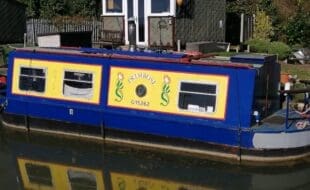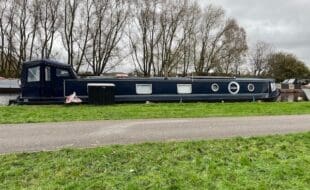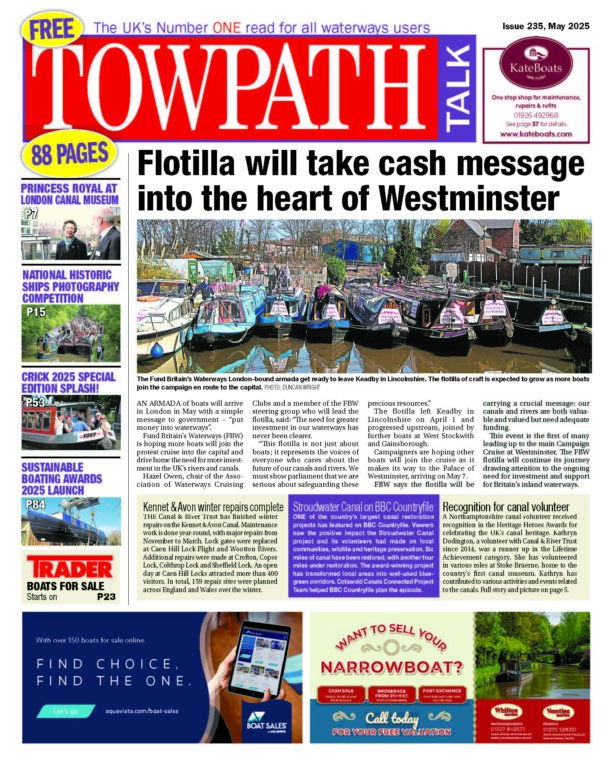Couple’s floating home is their workplace. Sally Clifford reports.
IT WAS a chance find; the forlorn-looking narrowboat was lying against a hedge when Colin Wood spotted it. He’d previously made a career out of buying, restoring and selling cabin cruisers and could see beyond the boat’s then sorry state. Colin knew it had potential and it proved to be a life-changing purchase for him, his wife (and fellow boater) Andrea.
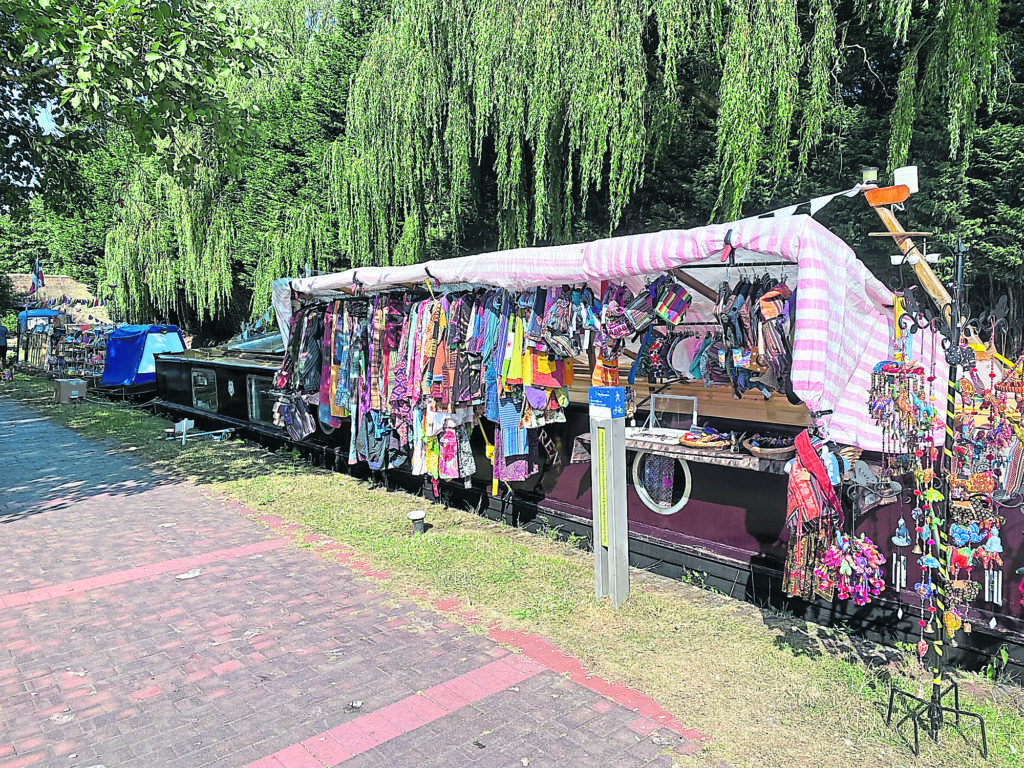
“Andrea has always had boats. She spent a lot of time on the Norfolk Broads and sailing in the Lake District. I did a bit of sailing and I love cabin cruisers. I used to buy them, do them up and sell them,” says Colin.
Big decision
A 43-year-old narrowboat was unchartered territory, but the hard work getting it afloat paid off in the end. “This boat was unusual – it had a clinker-shaped hull,” recalls Colin of his hedge find which proved to have an interesting background.
He explains how it was believed to be the only narrowboat built by Mr Hayter, an engineer and a pioneer of the rotary lawnmower. “I bought it and took it back to the farm where we were tenant farmers in North Yorkshire. It was in the shed laid on its side. We did just about everything – Andrea was the main painter.”
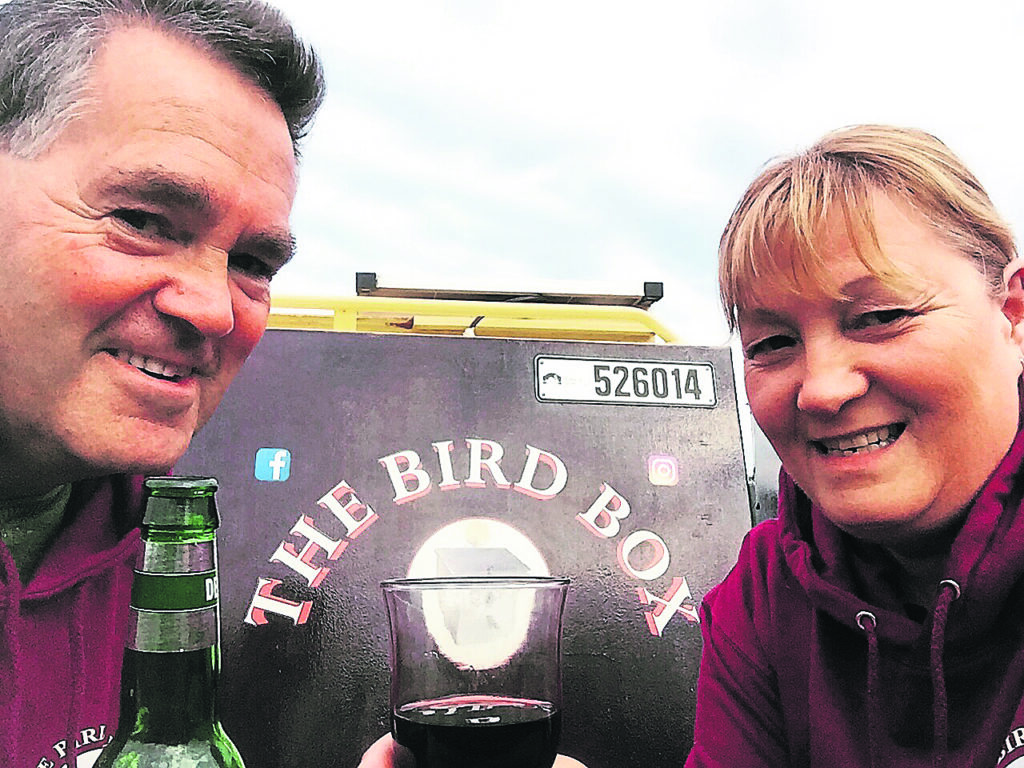
The idea was to turn the boat into a floating home for him and Andrea, but at 41ft they knew it wasn’t big enough. Colin explains they sent it to Hull to be stretched by 12ft. Once complete, the couple lived at Boroughbridge Marina on the boat they christened Jenny Wren, after the birds nesting in the barn wall on the farm where it was originally stored. Colin was the marina manager at the time. The location also had special significance for the couple as it was where they originally met, and where Colin proposed to Andrea on the slipway.
Roving traders
Their eventual move from the marina, off the River Ure and on to the River Ouse, was prompted by Colin’s new job.
“Andrea was still working as a care home manager and I was doing gardening, but we decided we wanted to go constant cruising and become roving traders,” says Colin.
The addition of their specially-made 14ft dumb barge – christened The Bird Box – provided them with a warm and cosy stockroom for the Fairtrade clothing they planned to sell.
“I have always been into hippy-type and Fairtrade clothing. When I was younger I lived on the outskirts of Skipton and I used to go into Skipton shopping because there are some really funky shops there,” says Andrea.
“We went into that because I am a hippy at heart. We did a lot of research on Fairtrade clothing and found some really good suppliers.”
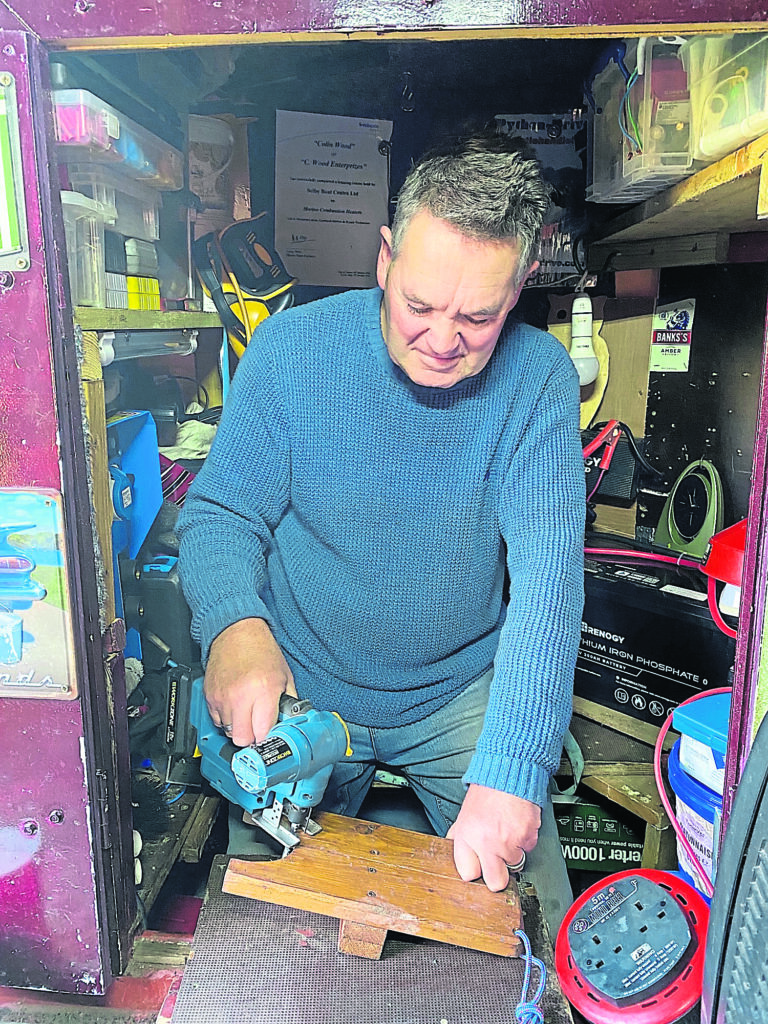
Keen knitter Andrea, whose hats and socks are among her stock, says they know their suppliers personally, and they also know the money spent on stock goes to worthwhile projects such as supporting children in Nepal.
However, just as they were about to launch the business, lockdown restrictions were imposed during the Covid pandemic. “We couldn’t open because we were selling clothing and not allowed to open,” recalls Andrea. Undeterred, they, like many other businesses keen to continue trading during that time, switched to selling online. They also set up an Instagram page. “That helped us get through Covid,” Andrea explained. They also secured a licence to sell coffee and snacks, and have continued to offer refreshments to passers-by on the towpath.
Once lockdown restrictions were lifted, the couple began trading at boat events and festivals as planned. “People are quite touchy-feely and they like to feel the textures. We have returning customers, they see things online and ask if we will put them away for them so they can have a look. People like the personal touch.”

Bird boxes, boot removers and plaques crafted by Colin are another dimension to their floating business. Crafting is a winter job for Colin, who can create without interruption in his specially- added ‘man cave’ on the front of Jenny Wren. “It’s absolutely great,” says Colin.
The simplicity of the roving lifestyle, seeing the changing seasons and the people they meet along the way, are all part of the appeal of living life afloat. “It’s that sense of freedom where it is sometimes you and nobody else and you can just chill out. It’s getting into that spiritual zone. It’s good for mental health and it’s good to just chill and just think about nothing,” says Andrea.

